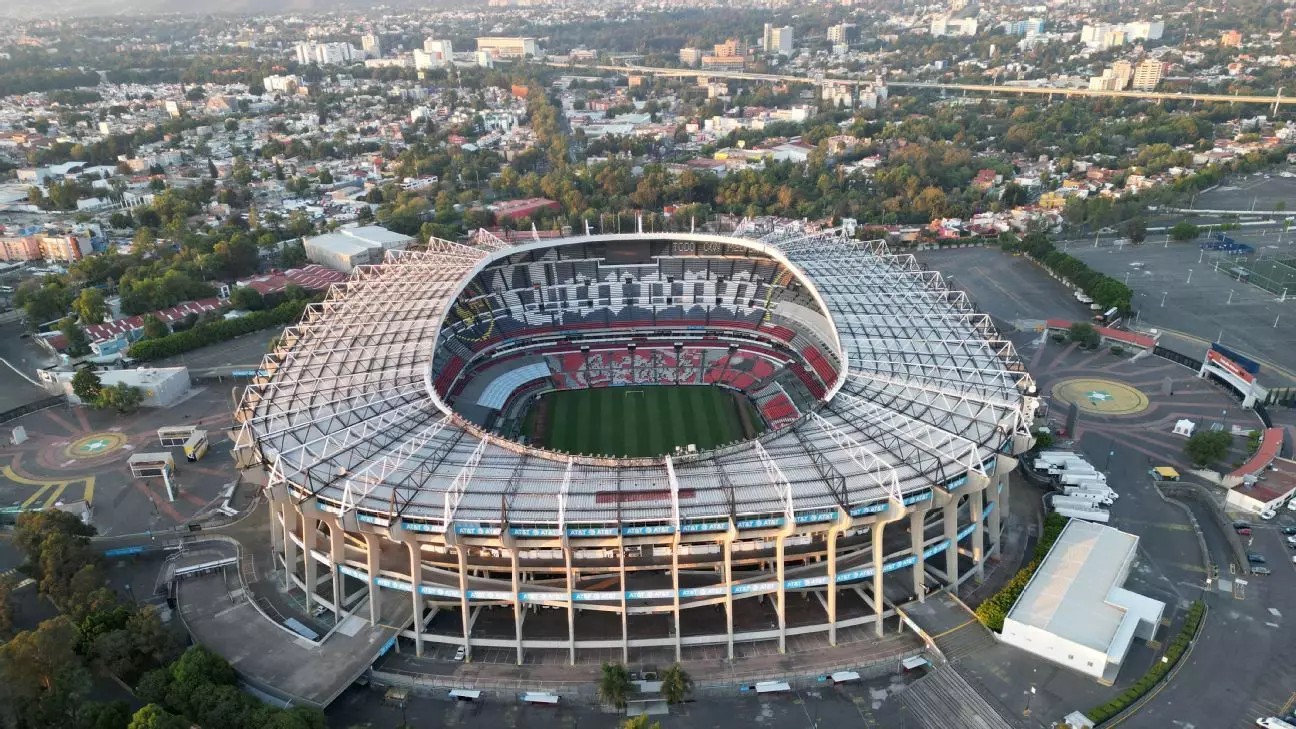The ongoing conflict between luxury box owners at Mexico City’s Azteca Stadium and FIFA regarding access to their seats during the 2026 World Cup has brought to light a 60-year-old deal that gives owners unlimited access to their seats for 99 years. The peculiar history of how the boxes were originally purchased at Azteca by Mexican businessman Emilio Azcárraga Milmo has fueled the current debate. The sale of boxes to private investors for 115,000 pesos in the 1960s, giving them access rights for almost a century, has led to a standoff between the box owners and FIFA over control of the stadium during the World Cup matches.
Owner’s Stand
Luxury box owner Roberto Ruano, who is also the spokesman for an association of 134 box owners, has firmly stated that they have no intentions of giving up their ownership rights during the World Cup. Ruano highlights the fact that the original deal included access to various events, including previous World Cups held in Mexico, establishing a precedent for the box owners to retain their privileges. The owner’s stance is supported by their belief that they have already paid for the right to use the boxes when they initially purchased them, and there should be no restrictions imposed on their access.
In contrast, FIFA has expressed its desire to have full control of the World Cup stadiums 30 days before the first match and seven days after the last one. The football governing body’s stance is to collaborate with the host cities, including the remodeling plans for Azteca Stadium, but specific details regarding fan access and other arrangements during the tournament are yet to be disclosed. The clash between FIFA’s authority and the long-standing ownership rights of the luxury box owners is a challenging issue that needs to be resolved before the 2026 World Cup kicks off.
With the stadium set to host five games during the upcoming World Cup, including the opening match, negotiations between the box owners and FIFA are crucial for a successful event. While some owners have agreed to release their seats in exchange for upgrades and benefits, others, like Ruano, remain steadfast in their claim to their ownership rights. Talks between the stakeholders have been ongoing, with hopes of reaching a mutual agreement that respects both the historical deal and the requirements of hosting a global sporting event.
As the discussions continue and the tournament approaches, the fate of the luxury box ownership at Azteca Stadium remains uncertain. The outcome of the negotiations will not only impact the 2026 World Cup but also set a precedent for future events at the iconic venue. Both sides are eager to find a resolution that satisfies the interests of the box owners while ensuring the smooth organization of the tournament. The upcoming decisions will be vital in determining the balance between tradition and modernity in the realm of sports events management.

Leave a Reply